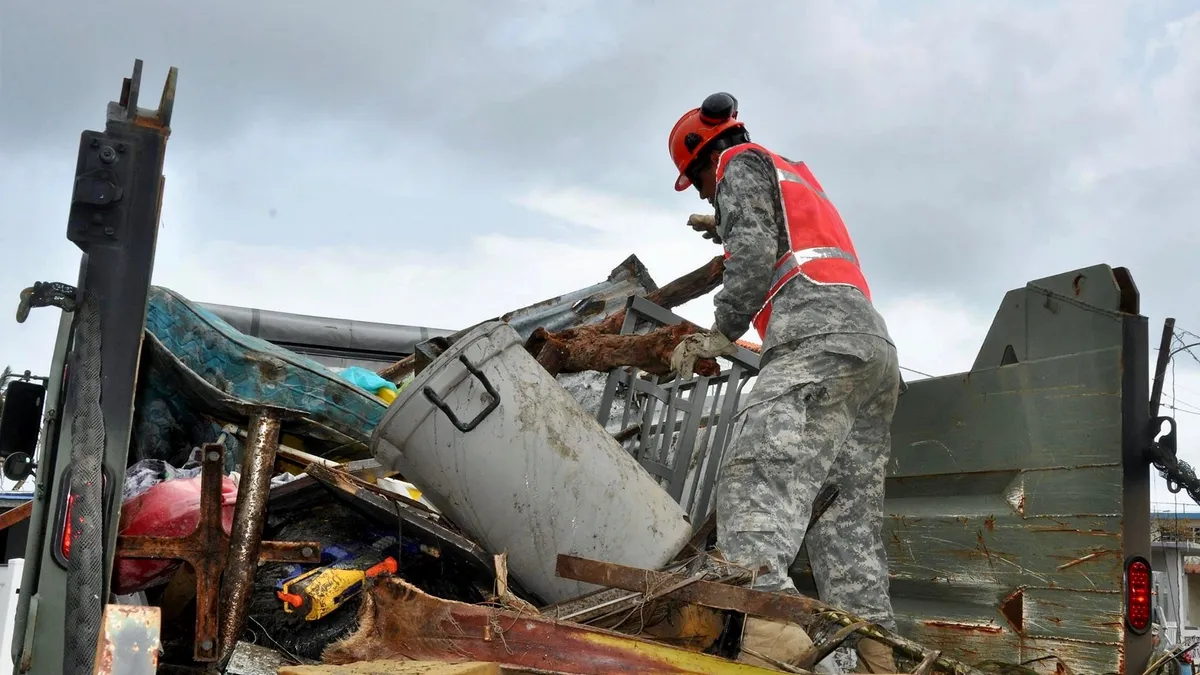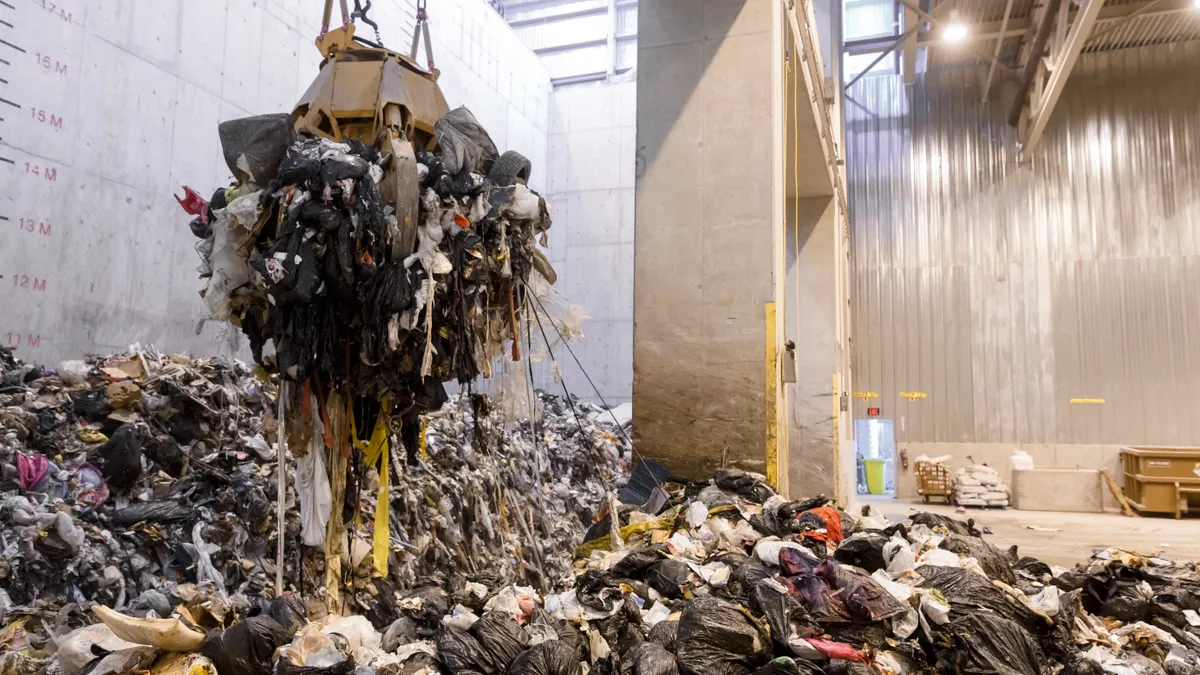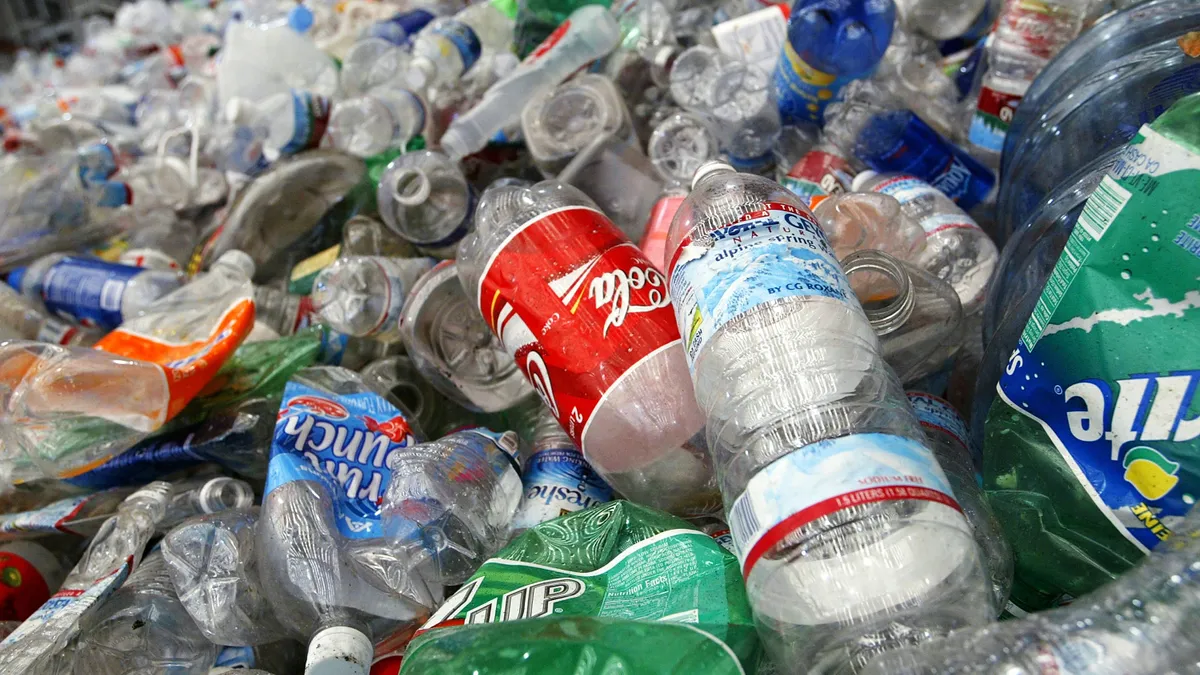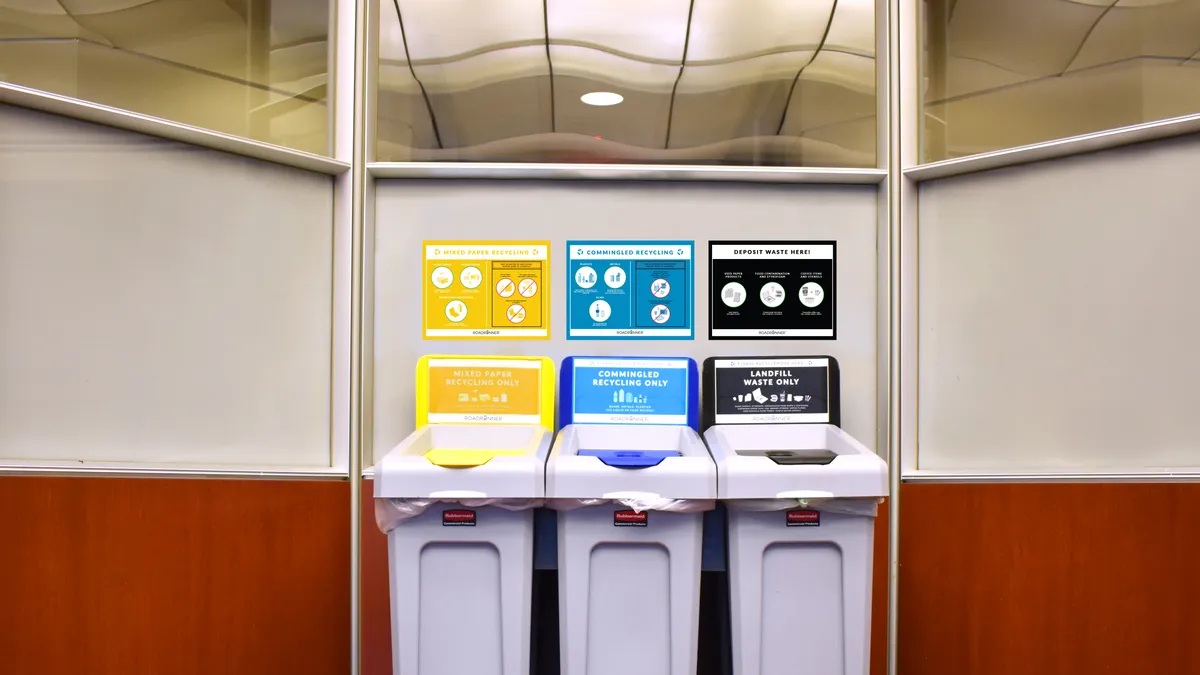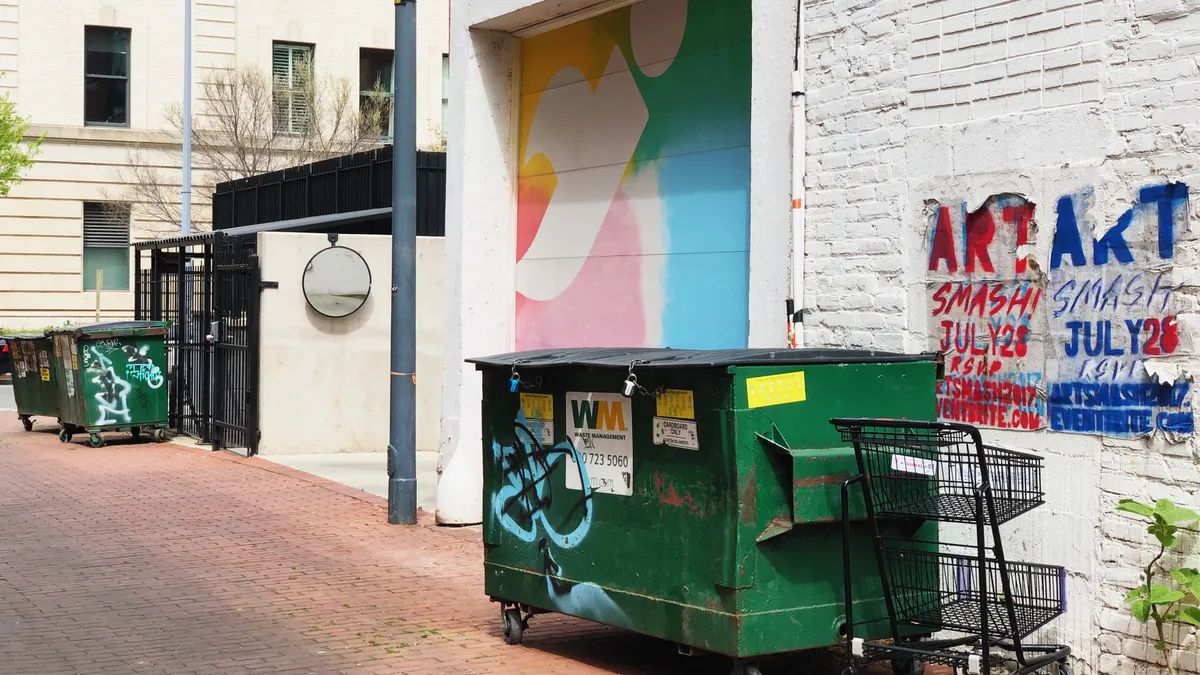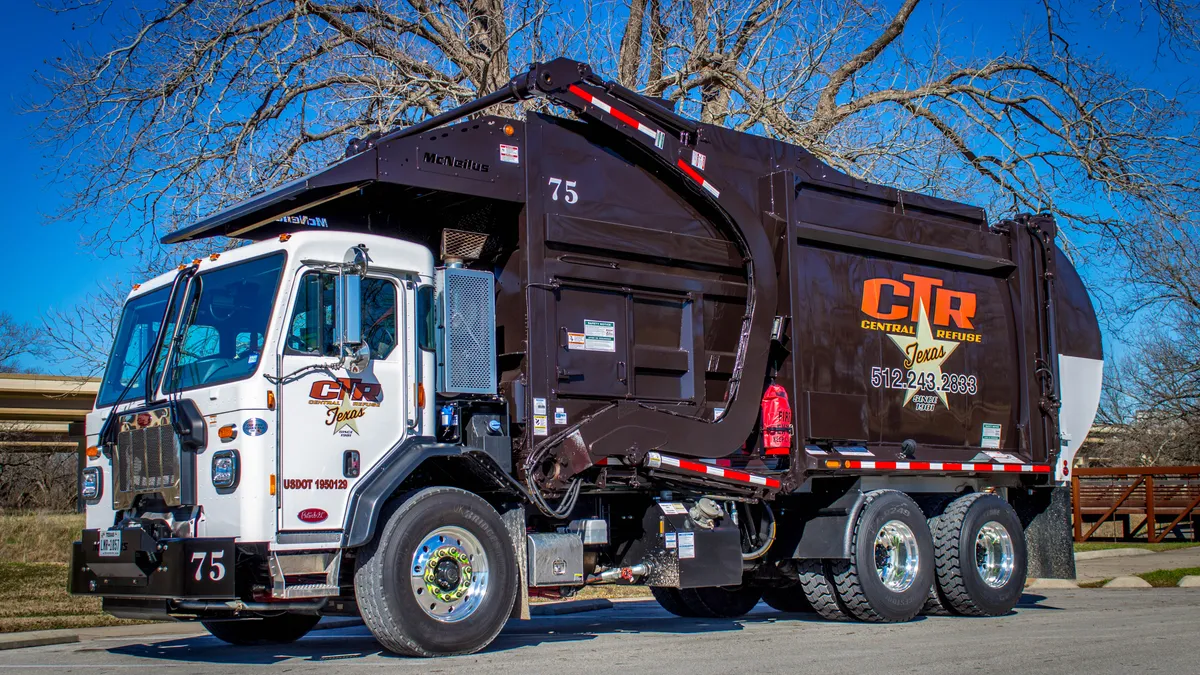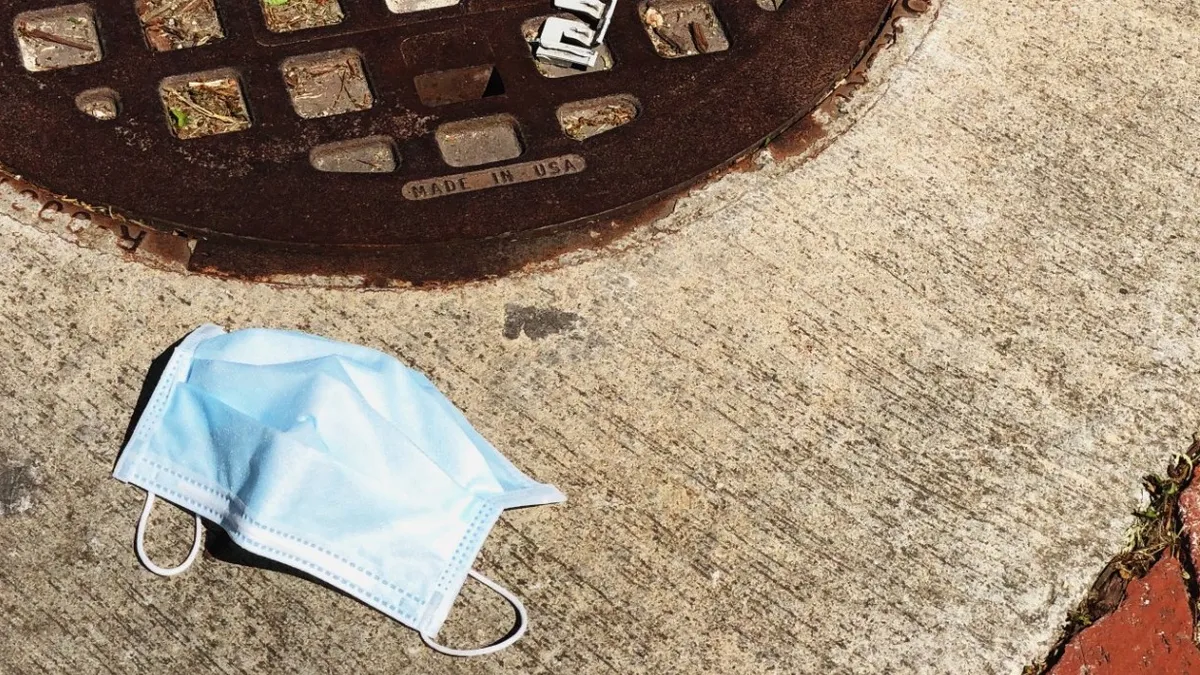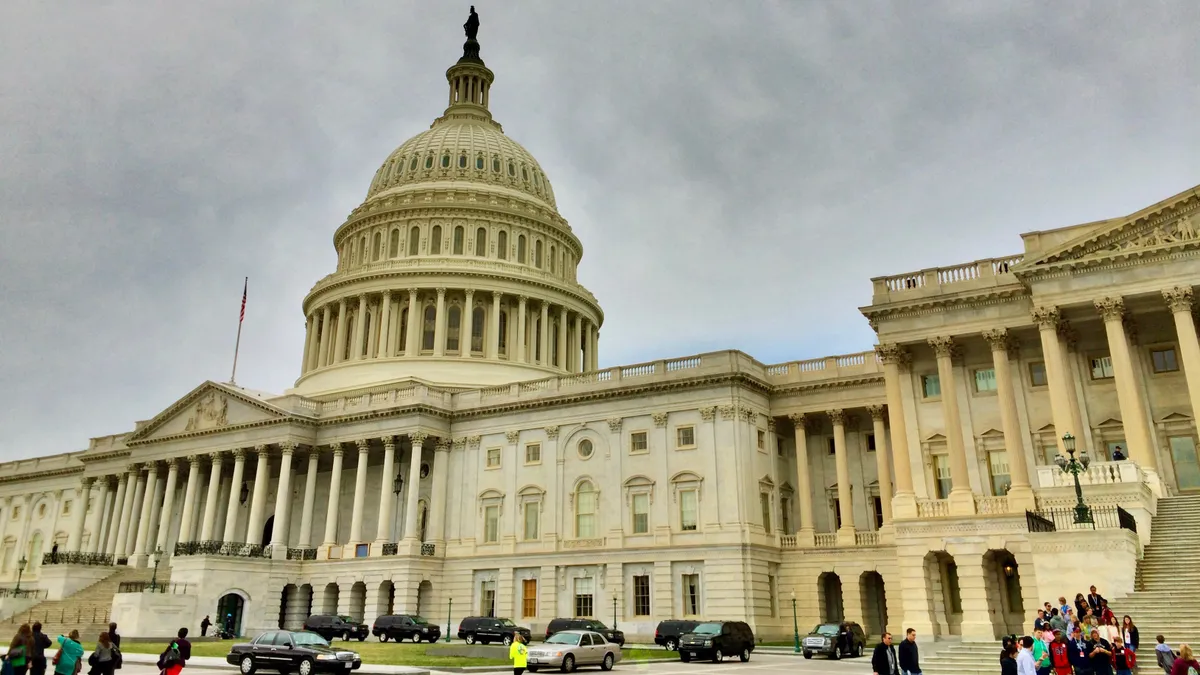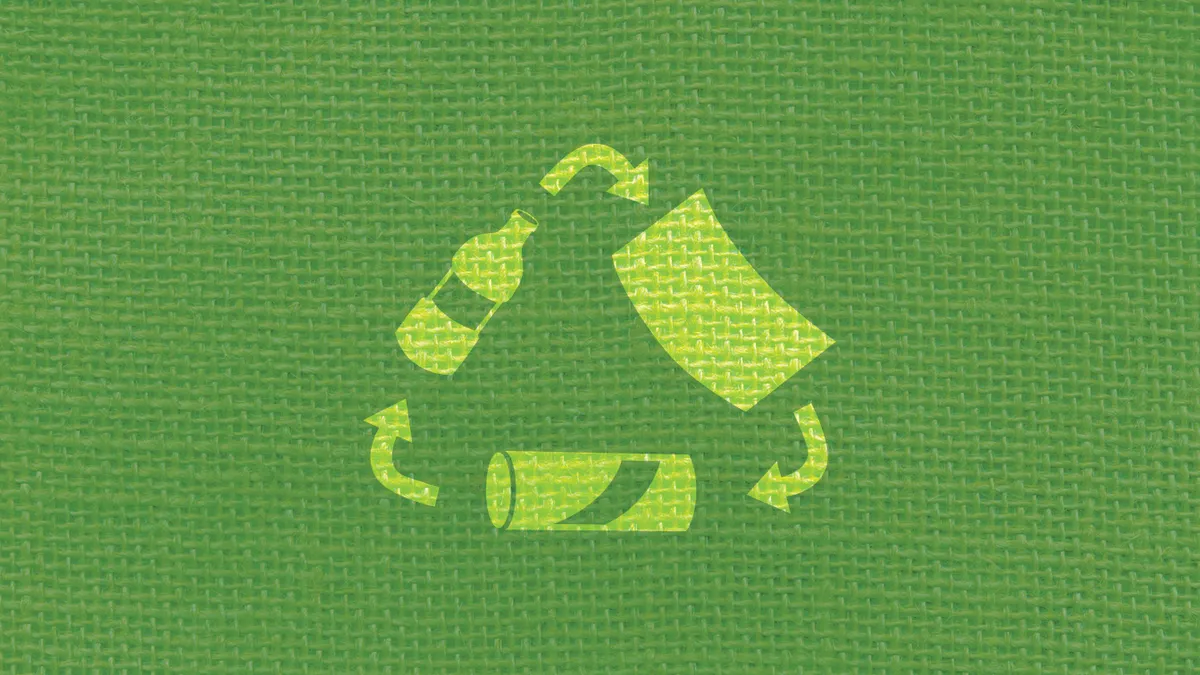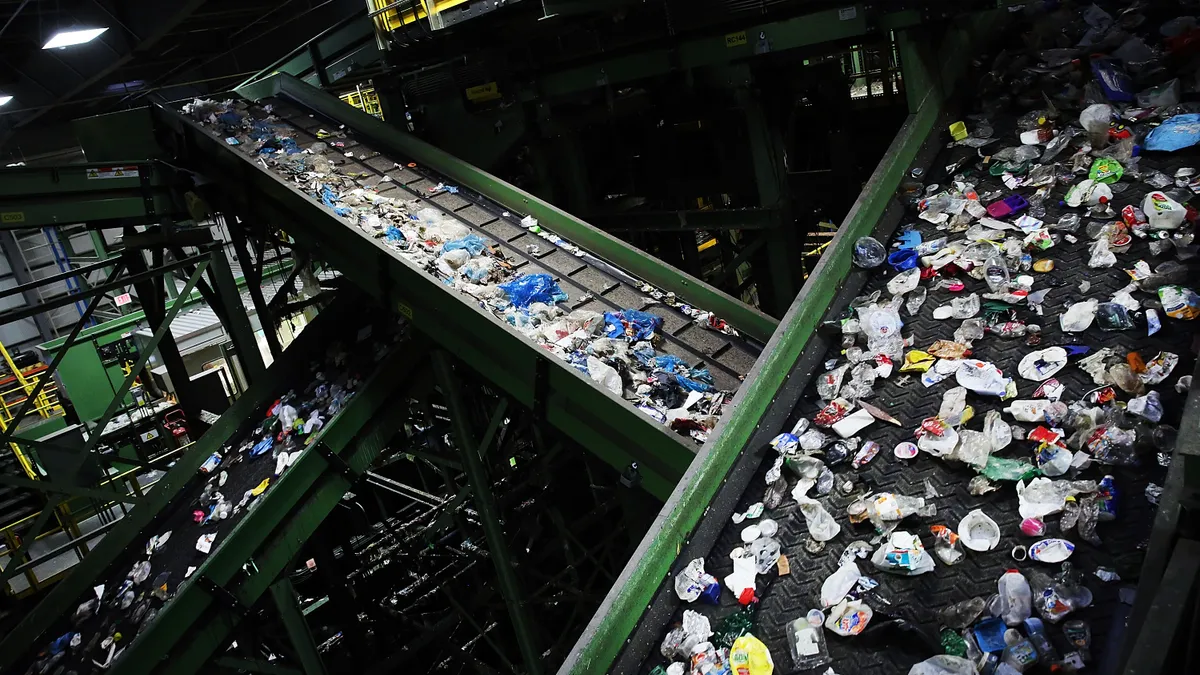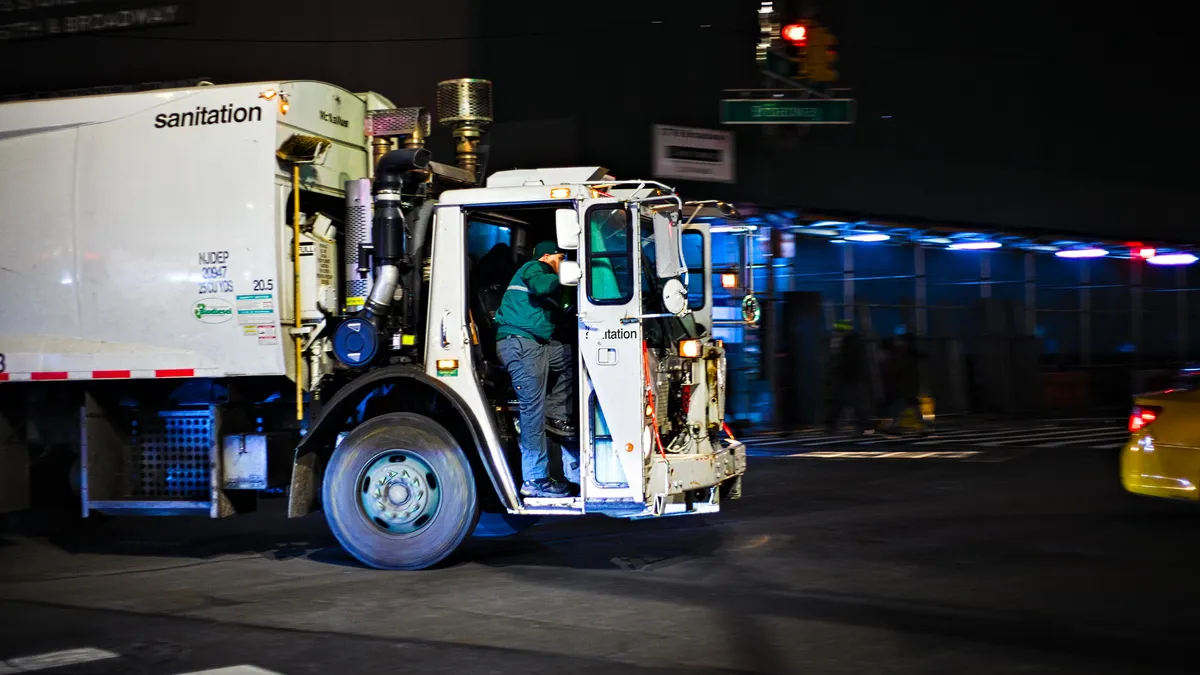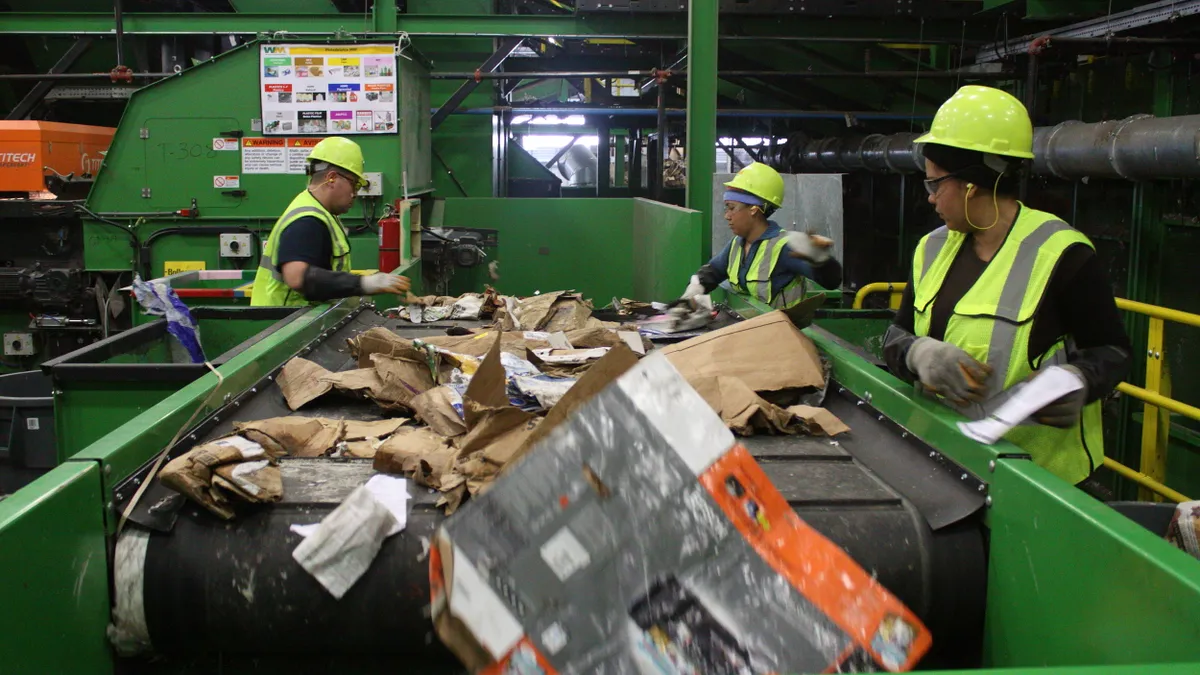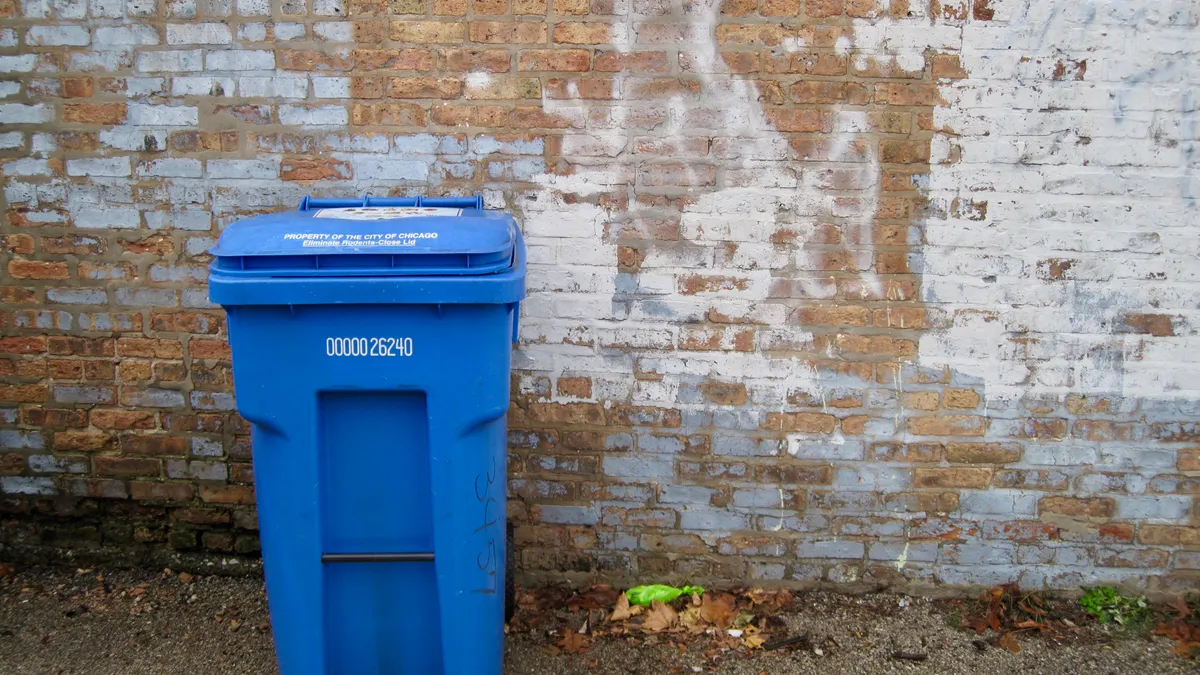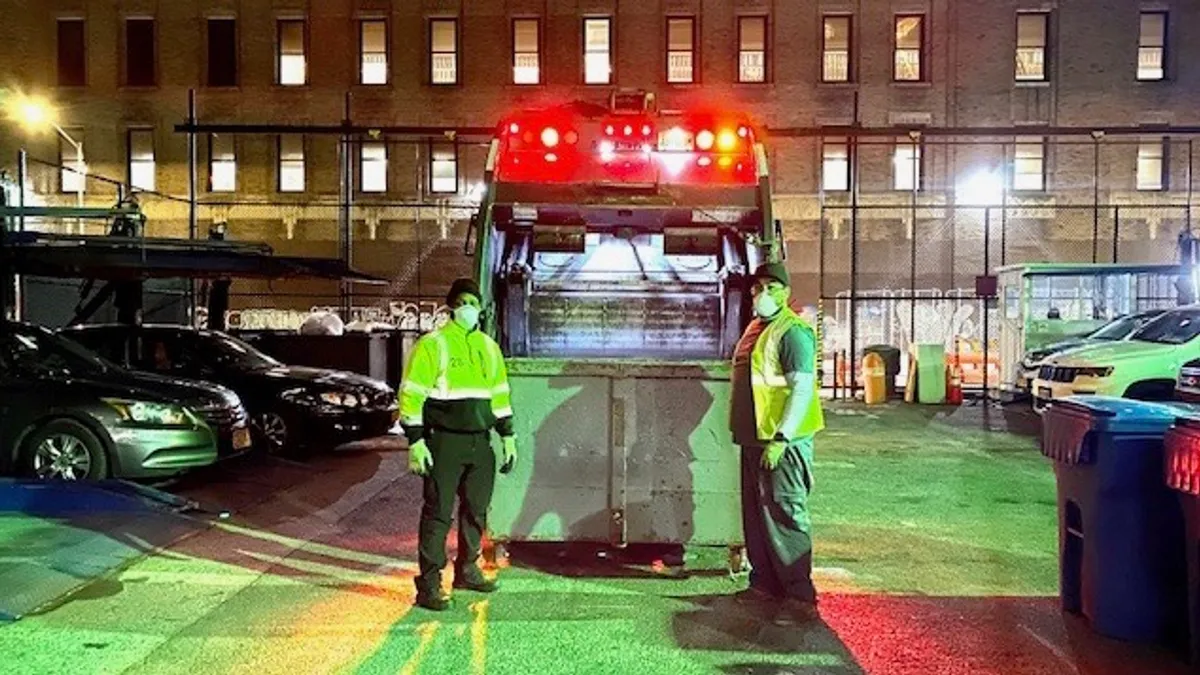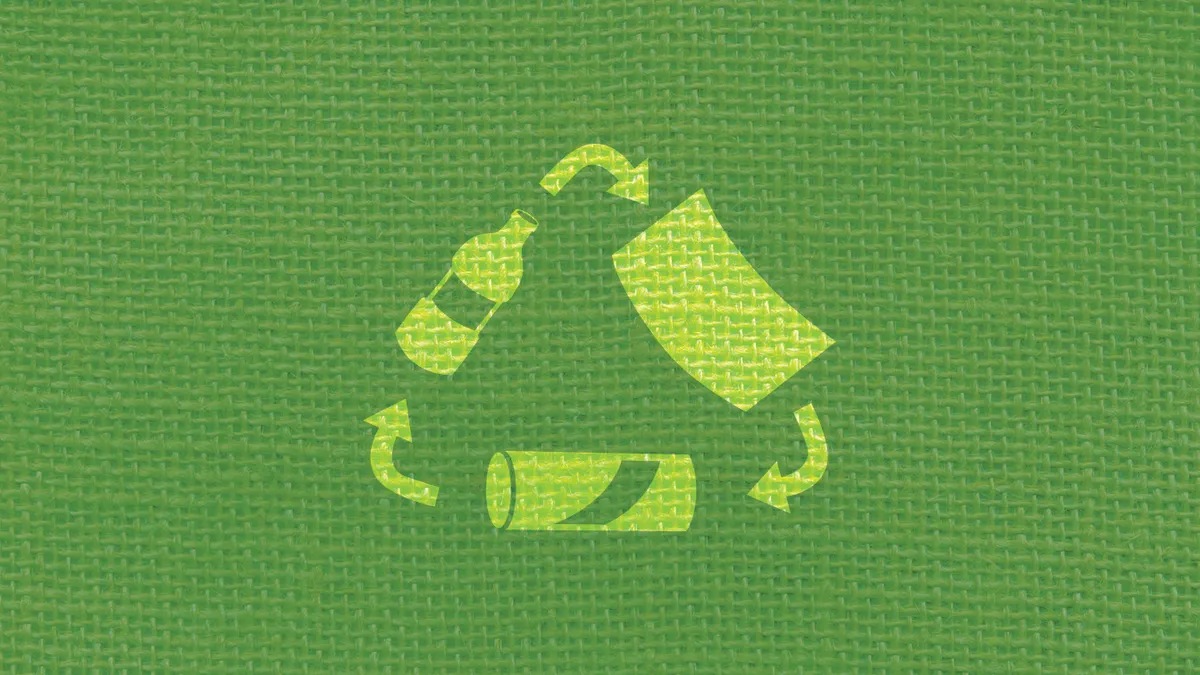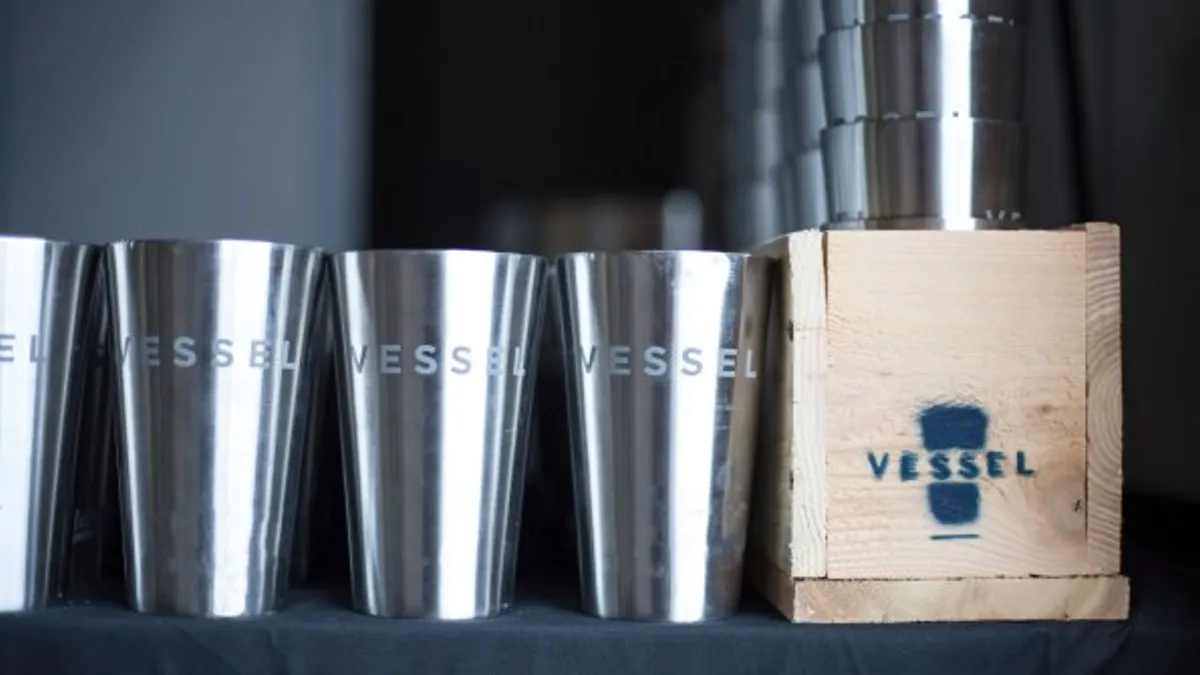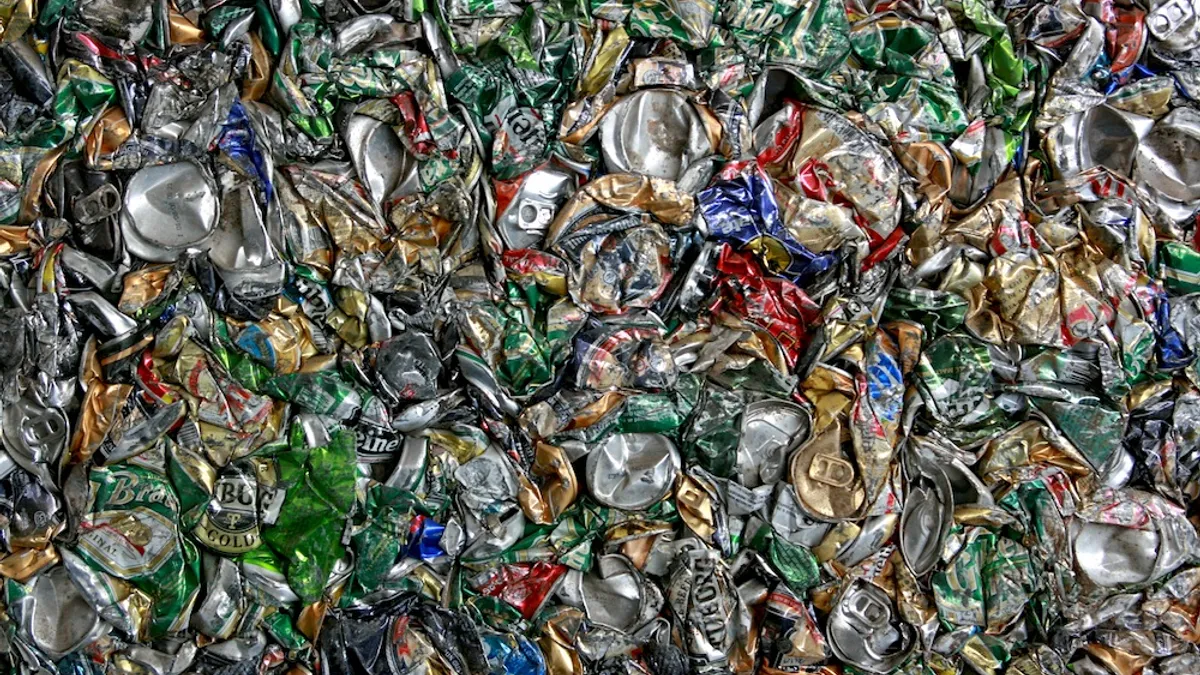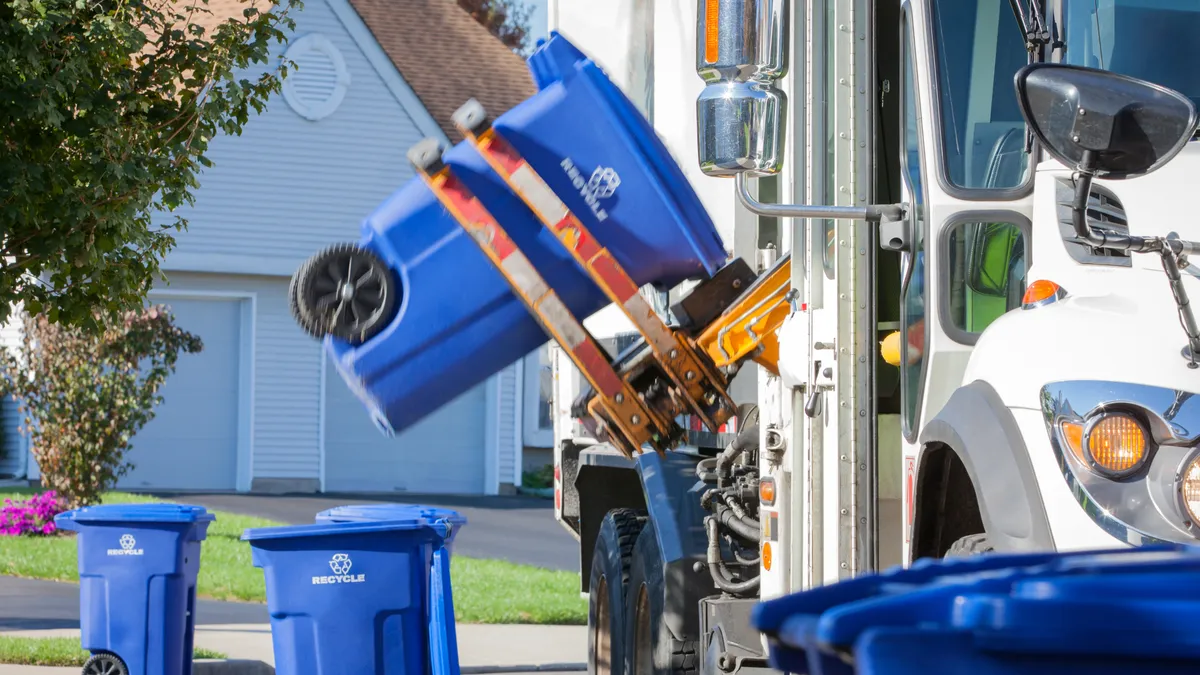Recycling: Page 50
-
Deep Dive
Puerto Rico's yearslong debate over WTE continues as the island's landfill issues mount
After a proposed incinerator project stalled in 2018, the territory's long-term plan remains uncertain as noncompliant landfills are reaching capacity. Meanwhile, recycling programs and waste reduction efforts are still evolving.
By Genevieve Glatsky • May 1, 2020 -
Covanta negotiating with Florida county over first US incinerator expansion in years
Pasco County commissioners approved initial plans to expand the facility, despite concerns over the potential $525 million cost. County officials deemed the move essential, but some said recycling efforts need improvement.
By E.A. Crunden • April 29, 2020 -
With EPR bills frozen due to coronavirus in many states, proponents still see path forward
The coronavirus has paused activity for high-profile bills focused on packaging, including one with momentum in Maine. Backers believe the current financial strain on local governments makes these policies even more important.
By E.A. Crunden • April 24, 2020 -
RoadRunner Recycling CEO says new $28.6M funding round to fuel expansion, despite pandemic
Graham Rihn discusses the Pittsburgh company's plans to scale its business, focused on capturing smaller volumes through source-separated collection, along with COVID-19 effects for a variety of customers.
By Cole Rosengren • April 22, 2020 -
Waste industry has received federal stimulus funding, but no one knows how much
The U.S. Small Business Administration could not provide a breakdown of how much went to the industry from a broader $15 billion funding category. Trade groups are aware of smaller companies applying, but also do not have data.
By E.A. Crunden • April 22, 2020 -
New player founded by former Advanced Disposal CEO enters Austin, Texas market via M&A
Integrated Waste Solutions recently acquired Central Texas Refuse and a sizable greenfield landfill project. Chairman Charlie Appleby and board member David Green discuss the potential to become "a very large company," including a focus on recycling.
By Cole Rosengren • April 21, 2020 -
One year covering COVID-19's impact on the waste and recycling sector
The coronavirus pandemic brought sweeping changes to the U.S., including significant effects for an industry that continued its work throughout the crisis. Catch up on all of Waste Dive's reporting from the initial year.
By Waste Dive Team • Updated March 15, 2021 -
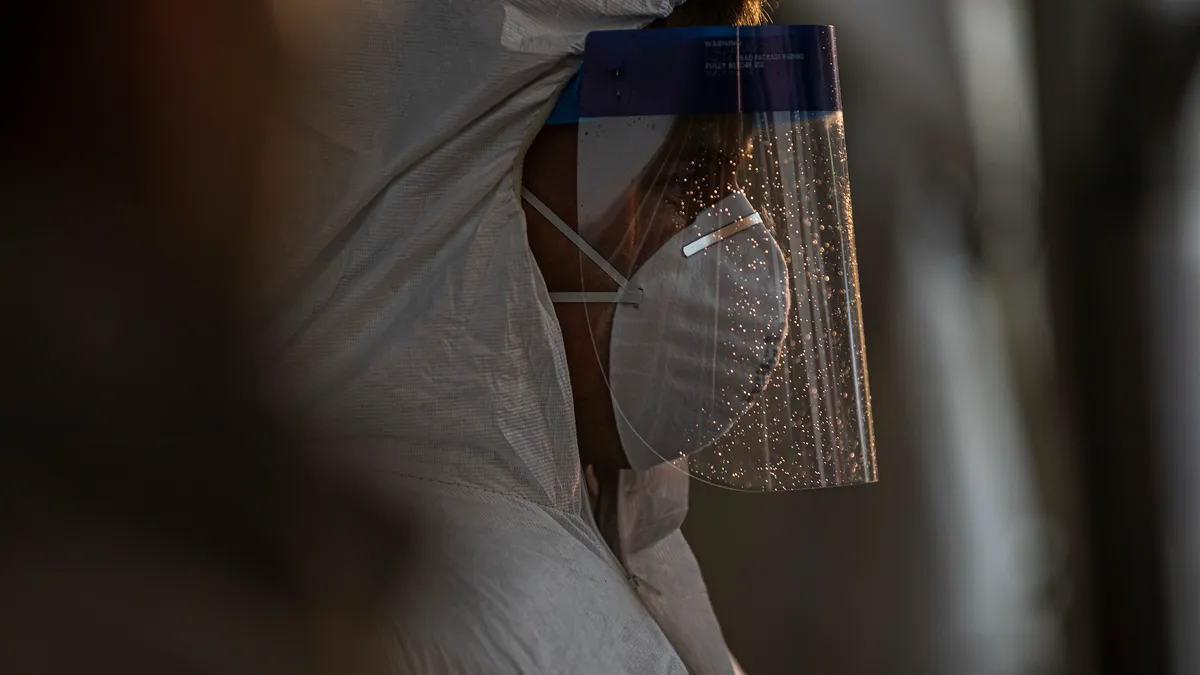
 "200323-Z-NI803-0053". Retrieved from Matt Hecht.
"200323-Z-NI803-0053". Retrieved from Matt Hecht. Deep Dive
Deep DivePandemics were not part of most contingency plans, but waste and recycling industry proving resilient
Precautions previously in place for industry disruptions did not account for a coronavirus-induced economic disruption. Companies and public sector consultants discuss what's next more than a month in.
By Cole Rosengren , E.A. Crunden • April 17, 2020 -
Industry groups push for inclusion of recycling infrastructure in next federal coronavirus aid package
The Recycling Partnership, NWRA, SWANA and others argue recycling should be in the next stimulus effort as part of any infrastructure designation amid fears that momentum around national bills has faltered during the pandemic.
By E.A. Crunden • April 17, 2020 -
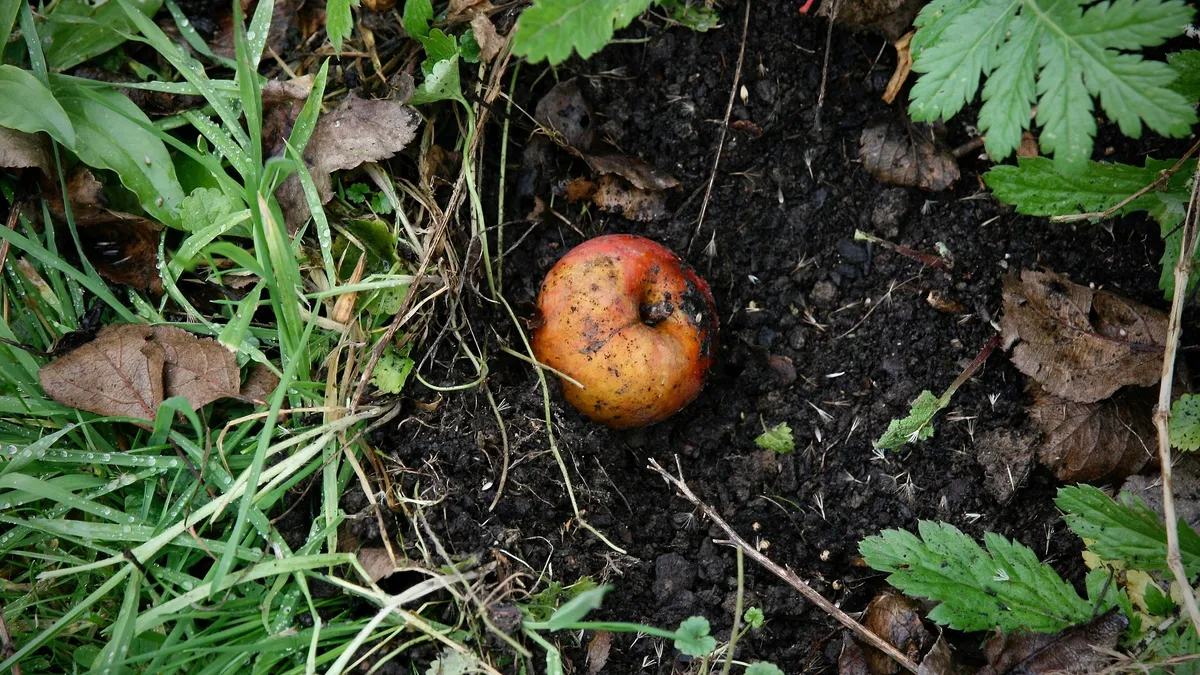
 Annette Meyer. (2018). Retrieved from https://pixabay.com/photos/autumn-windfall-apple-compost-3795989/.
Annette Meyer. (2018). Retrieved from https://pixabay.com/photos/autumn-windfall-apple-compost-3795989/.
Reducing food waste emerges as key climate solution
Project Drawdown's 2020 report, released before the pandemic, elevated food waste as an increasingly relevant solution while highlighting the role industry can play in tackling the issue through reducing waste sent to landfills.
By E.A. Crunden • April 16, 2020 -
Governments encouraged to expand procurement of products with PCR
The Association of Plastic Recyclers and Northeast Recycling Council have launched for a public sector version of the Demand Champions program. Bags, carts, furniture and more are seen as opportunities for boosting recycling demand through procurement.
By Leslie Nemo • April 15, 2020 -
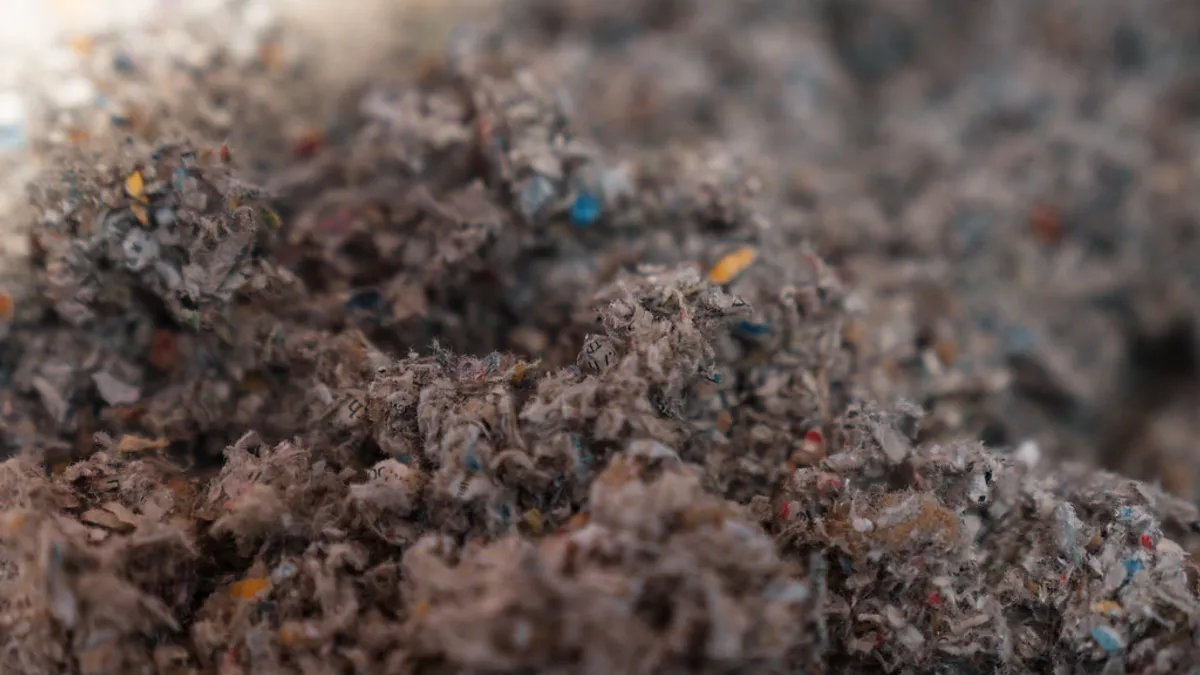
 "Recycled Mixed Paper Pulp, Post-Consumer Recyclable Waste" by Tony Webster is licensed under CC BY 2.0
"Recycled Mixed Paper Pulp, Post-Consumer Recyclable Waste" by Tony Webster is licensed under CC BY 2.0
COVID-19 turns some recycled fiber market dynamics on their head
Surges in consumer toilet paper and e-commerce purchases are causing a boom in demand for certain types of recycled fiber, but supply is falling short. Moore & Associates, ISRI, Closed Loop Partners, The Recycling Partnership and others weigh in.
By Katie Pyzyk • April 13, 2020 -
Dishwashers and data laid the groundwork for California city's landmark waste reduction ordinance
The ReThink Disposable program, designed to help restaurants switch to reusables, was a model for Berkeley's foodware ordinance set to fully take effect this summer. Whether the COVID-19 pandemic will disrupt those plans remains to be seen.
By Karine Vann • April 9, 2020 -
Deep Dive
As some MRFs close during the pandemic, more adapt and carry on
Social distancing has become a challenge, PPE is in high demand and staffing availability is shifting. While MRFs in some states have closed, the industry's biggest residential recyclers report their facilities are still largely operational.
By Cole Rosengren • April 8, 2020 -
New York reports more than 350 COVID-19 cases among sanitation workers, one death
The city's outsized numbers far surpass reported cases involving the industry in other metropolitan areas, based on inquiries by Waste Dive, but transparency is limited and collection workers remain concerned about ongoing exposure risks.
By E.A. Crunden , Cole Rosengren • Updated April 9, 2020 -
Waste Management resumes all California MRF operations after COVID-19 concerns
Waste Management previously sent force majeure letters to municipal customers warning of potential issues during the pandemic. Other companies were also making changes that could temporarily disrupt residential recycling.
By E.A. Crunden , Cole Rosengren • Updated May 19, 2020 -
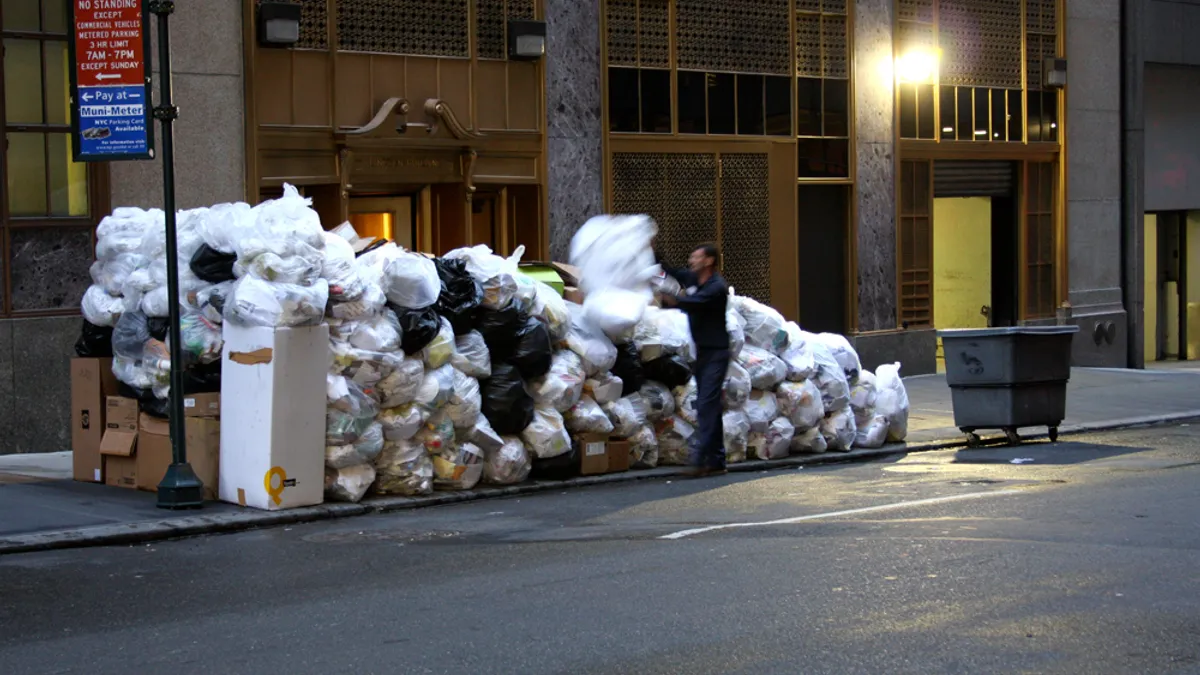
 The image by mulmatsherm is licensed under CC BY-SA 2.0
The image by mulmatsherm is licensed under CC BY-SA 2.0
New York bans expanded polystyrene foam products statewide
Gov. Andrew Cuomo approved the legislation, which will take effect in 2022. New York joins Washington in showing a willingness to target some plastics, despite a push by industry groups to promote their products during the pandemic.
By E.A. Crunden • Updated April 3, 2020 -
Chicago's ailing recycling program under new scrutiny
Pre-pandemic, the Department of Streets and Sanitation announced plans for a new waste study, aldermen called for oversight hearings and residual rates were a controversial issue. This attention comes as recycling contracts are up for renewal soon.
By Katie Pyzyk • April 1, 2020 -
Deep Dive
Uncharted waters: Waste and recycling companies adapting to the coronavirus economy
Commercial volumes are down dramatically in many markets, employee hours are being cut and contract terms are tested. How service providers respond could have lasting reputational and financial implications.
By Cole Rosengren • March 31, 2020 -
Opinion
How to talk about EPR, product stewardship and minimum content policies
Neil Seldman, director of the Institute for Local Self-Reliance's Waste to Wealth initiative, advocates for the use of common terminology in policy discussions around recycling.
By Neil Seldman • March 27, 2020 -
COVID-19 puts BYO coffee cups on hold, but sanitized reusable systems could fill the void
Major brands like Starbucks and Dunkin' have banned the use of personal to-go containers in recent weeks over coronavirus fears, raising new questions in a wider debate around packaging safety.
By Karine Vann • March 25, 2020 -
Oregon DEQ calls for emphasis on 'low-impact' materials, not 'recyclable'
As highlighted in a recent Northeast Recycling Council webinar, research shows that a recyclable product isn’t always the one that creates less waste or uses fewer valuable resources.
By Leslie Nemo • Updated April 1, 2020 -
At least 8 states suspend bottle bill requirements during coronavirus pandemic
Pressure on overwhelmed grocery stores and ongoing concerns about the transmission of COVID-19 via recyclables are key issues. Additional changes may be coming in the remaining two states with bottle bills.
By Katie Pyzyk • Updated March 25, 2020 -
OSHA: Treat municipal waste and recycling with possible COVID-19 contamination normally
The federal workplace safety regulator's previous guidance said any municipal solid waste with coronavirus connections should be treated as regulated medical waste, sparking concerns throughout the industry. NWRA and SWANA pushed for the change.
By Cole Rosengren • Updated March 20, 2020 -
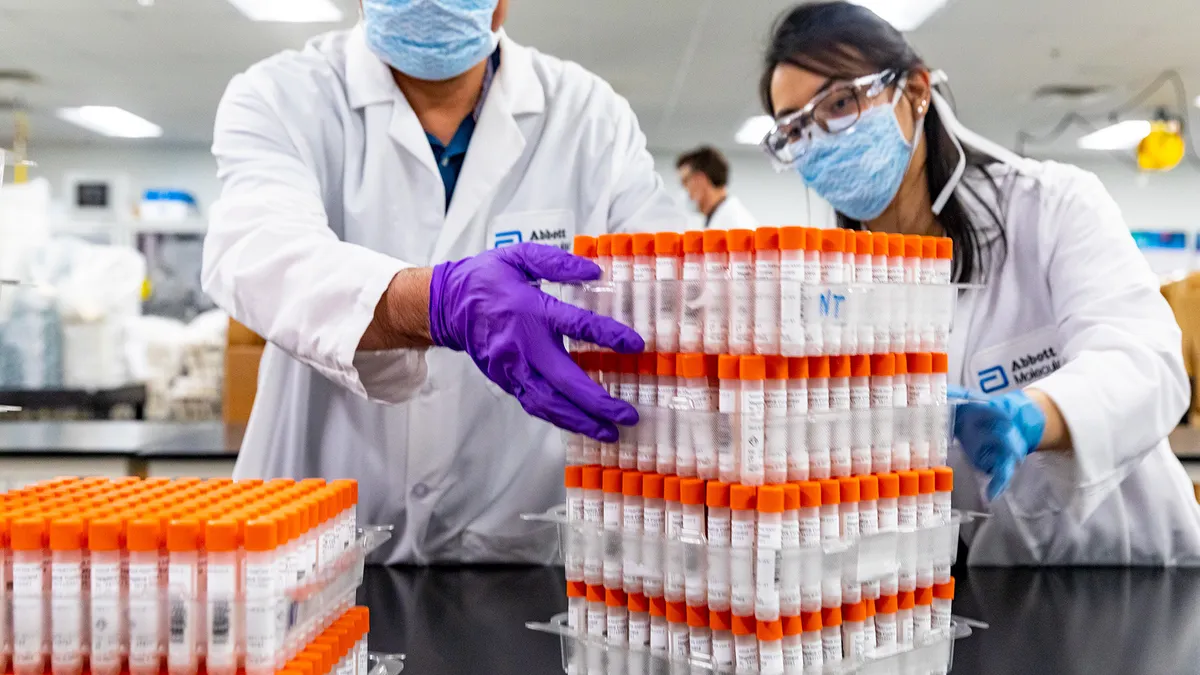
 Retrieved from Abbott, PRNewswire on March 19, 2020
Retrieved from Abbott, PRNewswire on March 19, 2020
Stericycle: Medical waste volumes from COVID-19 not as high as Ebola so far
Medical waste companies are seeking a uniform approach as the industry braces for coronavirus waste impact. NWRA, Stericycle and others are warning against "overclassifying" coronavirus waste as medical waste as part of that effort.
By E.A. Crunden • March 19, 2020

